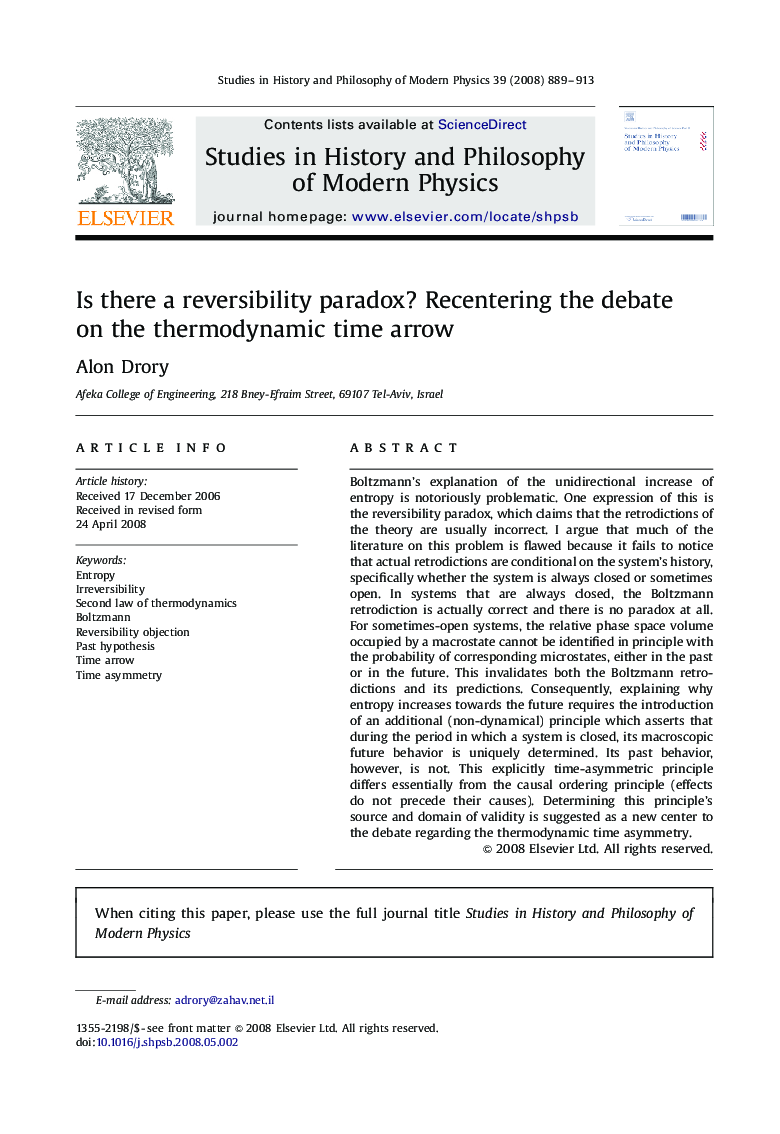| کد مقاله | کد نشریه | سال انتشار | مقاله انگلیسی | نسخه تمام متن |
|---|---|---|---|---|
| 1161086 | 1490455 | 2008 | 25 صفحه PDF | دانلود رایگان |

Boltzmann's explanation of the unidirectional increase of entropy is notoriously problematic. One expression of this is the reversibility paradox, which claims that the retrodictions of the theory are usually incorrect. I argue that much of the literature on this problem is flawed because it fails to notice that actual retrodictions are conditional on the system's history, specifically whether the system is always closed or sometimes open. In systems that are always closed, the Boltzmann retrodiction is actually correct and there is no paradox at all. For sometimes-open systems, the relative phase space volume occupied by a macrostate cannot be identified in principle with the probability of corresponding microstates, either in the past or in the future. This invalidates both the Boltzmann retrodictions and its predictions. Consequently, explaining why entropy increases towards the future requires the introduction of an additional (non-dynamical) principle which asserts that during the period in which a system is closed, its macroscopic future behavior is uniquely determined. Its past behavior, however, is not. This explicitly time-asymmetric principle differs essentially from the causal ordering principle (effects do not precede their causes). Determining this principle's source and domain of validity is suggested as a new center to the debate regarding the thermodynamic time asymmetry.
Journal: Studies in History and Philosophy of Science Part B: Studies in History and Philosophy of Modern Physics - Volume 39, Issue 4, November 2008, Pages 889–913